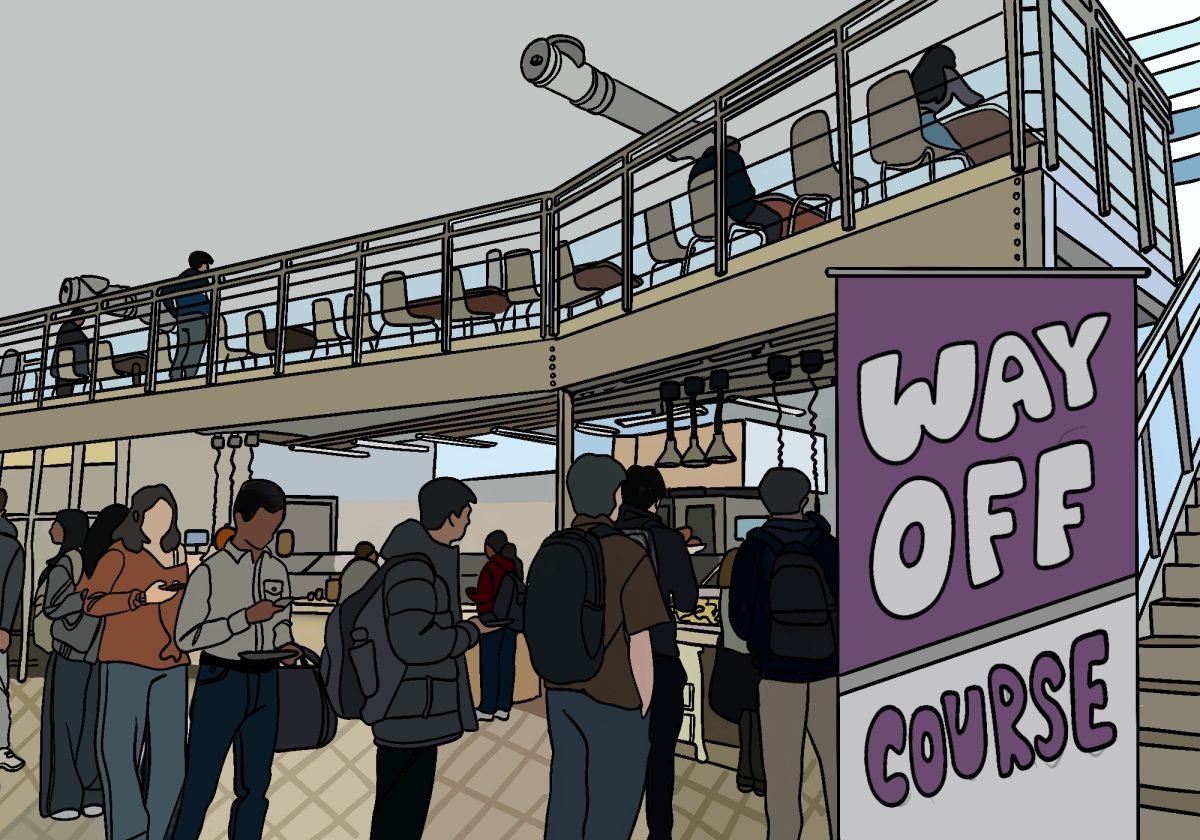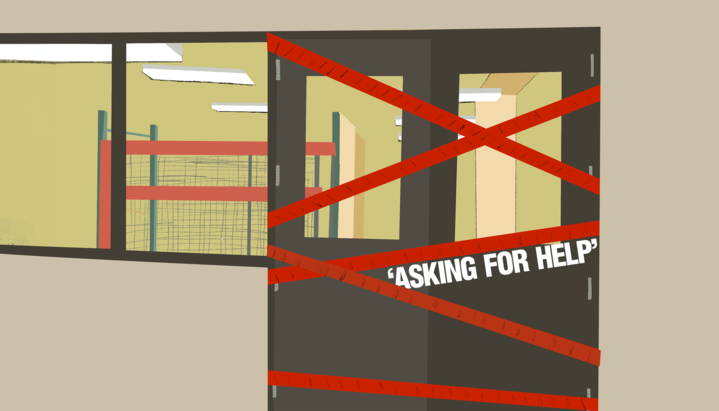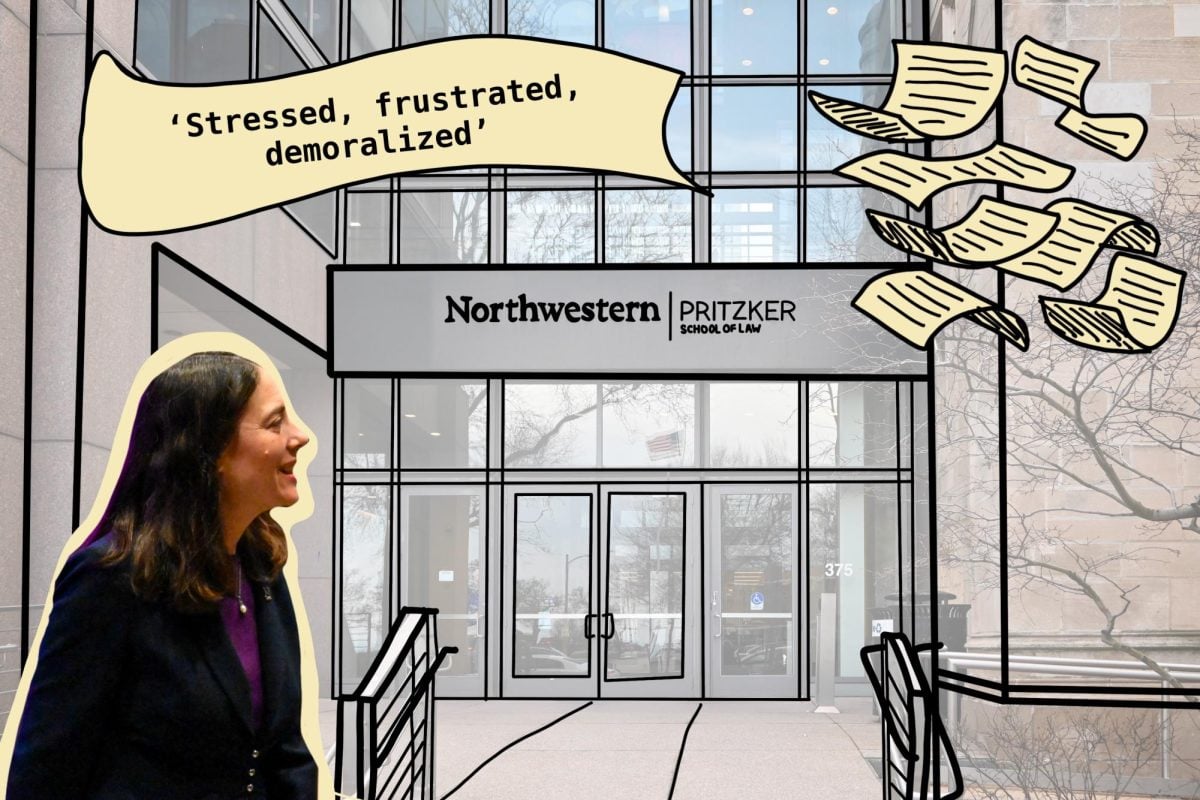The Northwestern administration will not ask Evanston to reconsider its “brothel law,” a zoning ordinance that will cause hundreds of students to be evicted next year from off-campus housing, a University official told THE DAILY on Monday.
The law, which prevents more than three unrelated people from living together, has not been enforced for years. But on July 1, Evanston will begin enforcing it, which will force landlords to evict some of the hundreds – or thousands – of NU students who live in off-campus houses or apartments with more than two roommates, city officials confirmed to THE DAILY on Monday.
In response, NU is encouraging students to move farther away from campus to find housing, Assistant Dean of Students Betsi Burns said.
Students should “think outside the box and go along the shuttle lines and the El to look outside this very small geographic area that students think they need to live in and explore their options,” Burns said.
“It’s the city law, and we have to follow it,” she added. “At this point, the University is not planning to lobby the city to amend the ordinance.”
For many students, enforcing the law will dissolve any sense of community at NU.
“I wouldn’t have come to NU if the website said students live in Chicago or take a bus to class,” SESP junior Emily Roskey said. “I don’t want to take a bus to class. I want to be biking around campus or walking around and running into my friends. I came here because it’s a community.”
Students will have a chance to question administrators and city officials about the ordinance Tuesday evening at an off-campus townhall meeting in the McCormick Auditorium at the Norris University Center. The meeting starts at 7 p.m.
Origins and issues
Title 6, Chapter 18 of the Evanston City Code includes a provision defining “family.” The provision, commonly referred to on campus as the “brothel rule” because of the rumor that it was made to prohibit houses of prostitution in the city, has been on the books for years. But city officials only recently took steps to enforce it; they began that process in the fall, but ultimately decided to delay the consequences related with enforcement until the end of this academic school year.
The ordinance allows the city to fine landlords $100 for each day a property remains in violation of the zoning regulation, starting 30 days after the initial warning. It is widely assumed that the fine is steep enough to ensure occupancy reduction by forcing landlords to evict tenants to avoid the fine.
The city is attempting to use the measure to reduce density in the residential neighborhoods surrounding NU’s campus, said Jeff Murphy, Evanston’s division manager of building and inspection services.
“Having so many students concentrated in one area is a problem that’s been identified through complaints with parties and noise and garbage,” he said.
For Ald. Coleen Burrus (9th), the ordinance is in place to maintain property standards and neighborhood upkeep. The chances of a residence throwing parties and producing excess noise and garbage increase greatly with a residence of more than three people, she said.
“Unrelated folks aren’t necessarily going to keep up the property or care about the surrounding area,” Burrus said.
But some Evanston landlords said they object to the ordinance.
Property manager Nancy Gabriel said the city needs to figure out a way to work in conjunction with landlords and students, instead of stringently enforcing the law, which she said “creates suspicion between all parties involved.”
“It is a well-intentioned law, and I understand why the city instituted it, but it’s far from achieving its goal,” Gabriel said. “I don’t see this law in any way working to actually address the problem. I find it very problematic, and I see it causing more problems than solutions.”
Those problems include a simple cost issue - many students will not be able to afford housing near campus if they cannot split the rent between more than three people.
“It raises cost of housing for students and relies on a very basic misunderstanding of original composition of the original housing structure in the area,” Gabriel explained.
That misunderstanding of housing structures could lead to an increase in the number of vacant houses in Evanston, said Noah Seidenberg, an Evanston realtor for Coldwell Banker.
Most houses for rent near campus were originally put on the market for sale, Seidenberg said. When the houses did not sell, the owners turned the properties into rental units. In most cases, groups of NU students are the only type of tenant with the means to rent the larger four- or five-bedroom homes, he said.
City officials said they are not concerned with what the law might do to the real estate market.
“We’re not in the business of controlling the housing market,” said Eric Palmer, an Evanston spokesman. “We don’t address that at the local government level.”
When asked about the possible negative impact on the housing market, Burrus strongly defended the ordinance.
“You are reaching for a reason to not have the ordinance done,” she said. “You’re looking for the outlier and not the overall benefit for the city. I’ll say it again and again and again. You’re coming up with individual scenarios. We have to make ordinances and rules for overall situations, not for individual cases.”
Seidenberg said the majority of students who live off campus do not throw disruptive parties and must speak up for themselves if they want to see change.
“Serious students need to be able to afford housing,” he said. “In a village council meeting when residents are saying we want these laws enforced, the other side should be saying, ‘Where will we go?'”
‘It is what it is’
The administration’s response to the city’s enforcement of the ordinance will be to educate students about off-campus living, Burns said.
“We don’t feel we need to protect the students from a city ordinance – we need to follow the ordinance,” she said. “It is what it is.”
Specifically, administrators are recommending students look for housing farther away from campus.
“Right now the rents are exorbitant closest to campus,” Burns said. “Some of these places are not very nice. Maybe if students have to look at some other options, they might be pleasantly surprised.”
To educate students, the Office of Student Affairs has launched an off-campus resource website to inform students living off campus about the ordinance. The site also provides information about other off-campus issues such as dealing with problem landlords or legally planning a party, Communication senior Barry McCardel said.
McCardel is a member of the recently-pioneered Off-Campus Advisory Board, a group of 10 students created by Student Affairs to “tackle off-campus problems relating to housing, conduct and relations with neighbors,” he said.
“The board is a tool for the administration, and we’re also working on community projects,” he said.
McCardel, who also serves as chairman of A&O Productions, stressed the need for students to be aware of Evanston laws, and said the administration hopes the off-campus resource website will help with that awareness.
“Signing a lease is the biggest agreement students have ever entered into,” he said. “It’s a multi-thousand dollar contract that they rush into, but they should be aware of the consequences.”
Squatting students
McCormick junior Oliver Williams said he prefers off-campus living closer to NU’s campus because of his involvement in the NU community. Williams said moving farther from campus would not be feasible for him because he is involved in many campus activities and walks a lot at night.
However, living farther away might work for some, he said.
“If upperclassmen are looking to grow up a little
faster and be more independent, which some seniors are, then it’s a good option for them,” he said.
Williams lives in a house with nine other people. Next fall he plans to live with eight roommates in a single family house, although he has not signed the lease yet. Williams went to the town hall meeting last quarter when the ordinance issue was discussed. He said he was not aware of the severity of the problem and might reconsider his living situation for next year. However, there are always ways around the ordinance, he said.
“There’s always the option to mask the presence of the excess people and change their room into storage for a day,” he said. “I’m not afraid to do that.”
Landlords seem to use this tactic to finagle their way around the ordinance, as all students interviewed for this article described situations in which the lease for one house or living unit is split into multiple leases, with three students to each lease, technically making the transaction legal on paper. The reality, however, is a different story.
“The landlord said if the city wanted to inspect the house, one of us would have to make our bedroom appear like it wasn’t a bedroom,” SESP junior Dani Baurer said. She also lives in a two-unit house, with three people in one unit and four in the other. Only three people signed the lease for the four-person unit, she said.
“Technically one of us is a squatter,” she said.
‘Not unusual’ ordinance
From a legal perspective, Evanston’s brothel rule is legitimate, according to several Illinois real estate attorneys.
Evanston is one of 19 “home rule” municipalities in Illinois, meaning the city has the legal right under the Illinois constitution to enact its own legislation that pertains to its government and affairs.
“If the law pertains to the quotas of the government and affairs of the municipality, it’s a valid exercise of their home rule powers,” attorney Allan Goldberg said.
Illinois Real Estate Lawyers Association President Ralph Schumann agreed, calling the ordinance “not unusual.”
Schumann said ordinances that restrict occupancy must have an “appropriate” motivation in order to be valid. Evanston’s motivations are legal, he said.
“Property upkeep and neighborhood standard are legitimate arguments for having the ordinance,” he said. “The zoning issues here are legitimate.”
The University of Massachusetts Amherst’s college town of Amherst, Mass., has a similar ordinance in place that restricts the number of unrelated people living in one dwelling to four. The law was put in place in the 1970s after Amherst experienced unprecedented growth the previous decade as a result of the growth of the university, Amherst Senior Planner Christine Brestrup said.
“The theory was that the more students there were, the more potential there was for big parties and disruption to the neighborhood,” she said.
There was a movement last May on the part of the students to eradicate the ordinance with a proposed amendment, but it was defeated. The town government is working to create a better system to regulate rental properties, Brestrup said. Until then, the ordinance will remain in place.
But while Brestrup said Amherst is actively working to develop alternative options to the housing ordinance, Evanston officials do not appear as willing to work toward an alternative solution beyond the education of students on Evanston housing ordinances and alternative housing options.
“Evanston aldermen say there’s no intention to change the ordinance in any way,” Associated Student Government External Relations Vice President Ethan Merel said. “The situation shifts to how do we deal with it as it is.”
Next steps
As for students seeking housing for the next academic year, city and University officials each have the same advice: students should not enter into illegal leases.
“Students knowingly signing leases that violate the law are taking a huge risk by knowingly breaking a city ordinance,” Burns said. “I would not choose to do that if I were them.”
Administrators are hoping for a robust discussion at the off-campus town hall meeting Tuesday night. Burns and Dean of Students Burgwell Howard are scheduled to attend along with Murphy and other Evanston officials. All are expected to field questions from students and Evanston residents about the brothel rule and other off-campus issues.
“This is what it means to live in Evanston,” Howard said of the ordinance. “We want to make sure students are aware of the rules.”
Check back tomorrow for complete coverage of the off-campus town hall meeting and a full follow-up story in Wednesday’s newspaper.
This was first sent out as a breaking news alert. To be the first to know what’s happening on campus and in Evanston, sign up for breaking news alerts here.












